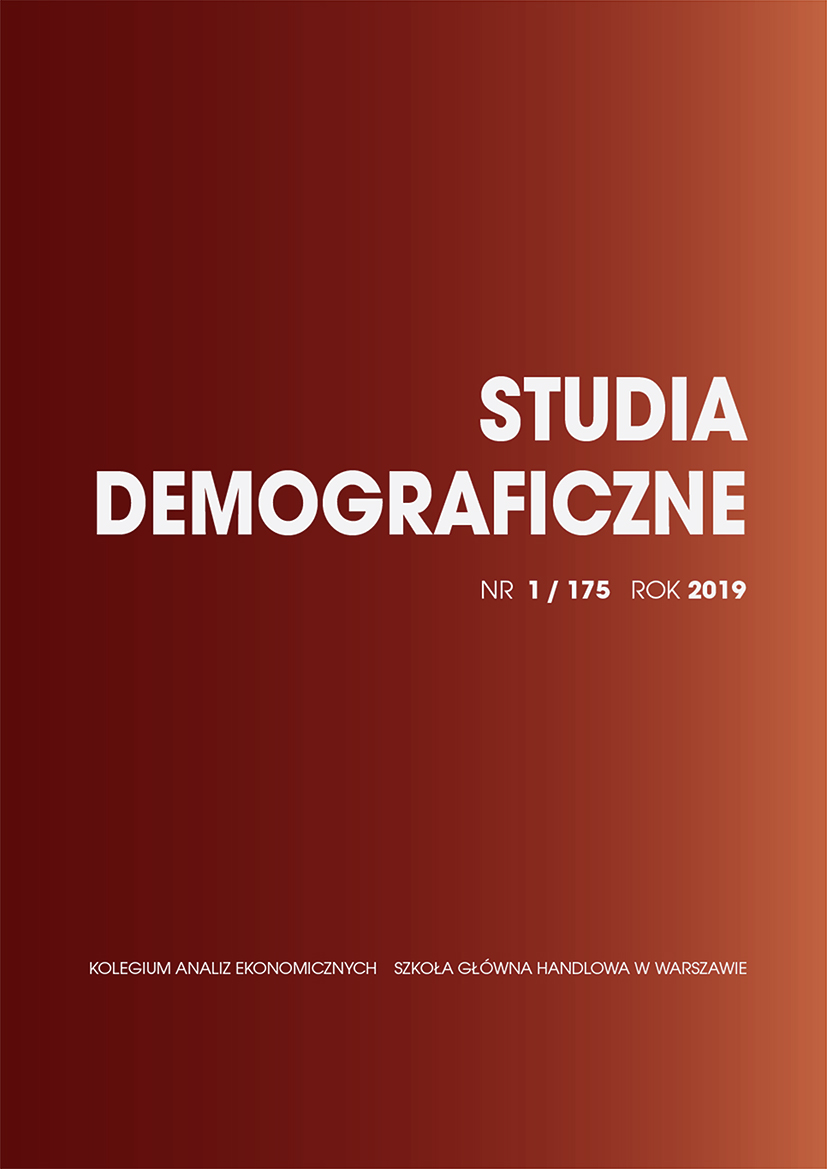Wpływ czasu pracy na zdrowie – podejścia badawcze i studium przypadku Francji
Main Article Content
Abstract
In recent decades, many publications devoted to the relationship between working time and health have been written. Available sources characterise different methodological approaches and different research perspectives, and the conclusions presented have not been unequivocal yet. The literature refers to both direct research on the impact of working time on health and to descriptions of wider phenomena indirectly related to the issue. Most studies in this area face a potential bias of the sample and the problem of the inverse causality of the impact of working time on health. Due to the reform of the labour law in France that shortened working time while maintaining a constant income, the analysis of the impact of working time on health carried out on the example of this country has overcome the difficulties faced by previous publications in the area. It has been shown that the reduction in working time has positively contributed to the health of the French.
Article Details
References
[2] Berniell, I. (2012). The Effects of Working Hours on Health Status and Health Behaviours. Madrit: CEMTI – UIMP.
[3] Berniell, I., Bietenbeck, J. (2018). The Effect of Working Hours on Health. La Plata. Universidad National de la Plata and CEDLAS.
[4] Burger, A. (2015). Extreme working hours in Western Europe and North America. A new aspect of polarization. London: LEQS Paper No. 92/2015.
[5] Cygan–Rehm, K., Wunder, Ch. (2018). Do working hours affect health? Evidence from statutory workweek regulations in Germany. Berlin: German Socio-Economic Panel at DIW Berlin.
[6] De Spiegelaere, S., Piasna, A. (2017). The Why and How of working time reduction. Brussels: European Trade Union Intitute.
[7] Employment Outlook (1998), Working hours. latest trends and policy initiatives, OECD 1998, s. 153–188. DOI: https.//dx.doi.org/10.1787/empl_outlook-1998‑en.
[8] Frijters, P., Haisken-DeNew, J. P., Shields, M. A. (2003). Estimating the casual effect of income on health: Evidence from post reunification East Germany.
[9] Gerdtham, U., Ruhm, C. (2002). Deaths Rise in Good Economic Times. Evidence From the OECD. Cambridge, MA: National Bureau of Economic Research.
[10] Goux, D., Maurin, E., Petrongolo, B. (2014), Worktime regulations and spousal labor supply, American Economic Review, 104 (1), s. 252–276.
[11] Griffin, J. (1993). The Impact of Unemployment on Health. London: Office of Health Economics.
[12] Kivimäki, M., Jokela, M., Nyberg, S. T., Singh-Manoux, A., Fransson, E. I., Alfredsson, L., Bjorner, J. B., Borritz, M., Burr, H., Casini, A., Clays, E., De Bacquer, D., Dragano, N., Erbel, R., Geuskens, G. A., Hamer, M., Hooftman, W. E., Houtman, I. L., Jöckel, K.‑H., Kittel, F., Knutsson, A., Koskenvuo, M., Lunau, T., Madsen, I. E. H., Nielsen, M. L., Nordin, M., Oksanen, T., Pejtersen, J. H., Pentti, J., Rugulies, R., Salo, P., Shipley, M. J., Siegrist, J., Steptoe, A., Suominen, S. B., Theorell, T., Vahtera, J., Westerholm, P. J. M., Westerlund, H., O’Reilly, D., Kumari, M., Batty, G. D., Ferrie, J. E., Virtanen, M. (2015). Long working hours and risk of coronary heart disease and stroke. a systematic review and meta-analysis of published and unpublished data for 603 838 individuals. DOI: https://doi.org/10.1016/S0140–6736(15)60295–1.
[13] Lee, S., McCann, D., Messenger, J. C. (2007). Working Time Around the World. Trends in working hours, laws and policies in a global comparative perspective. Geneva: ILO.
[14] Parent-Thirion, A., Wilczynska, A., Cabrita, J., Biletta, I., Vargas, O., Wilkens, M., Vermeylen, G. (2016). Sixth European Working Conditions Survey – Overview report. Eurofound (dostęp: 31.10.2019). DOI: http://dx.doi.org/10.2806/422172.
[15] O’Reilly, D., Rosato, M. (2013), Worked to death? A census-based longitudinal study of the relationship between the numbers of hours spent working and mortality risk. Oxford: Oxford University Press.
[16] Ruhm, C. (2000). Are Recessions Good For Your Health?, Quarterly Journal of Economics, 115 (2), s. 617–650.
[17] Shields, M. (1999). Long working hours and health. Ottawa, Health Reports, Autumn, 11 (2), s. 33–48.
[18] Xu, X., Kaestner, R. (2010). The Business Cycle and Health Behaviours. Cambridge, MA: National Bureau of Economic Research.
